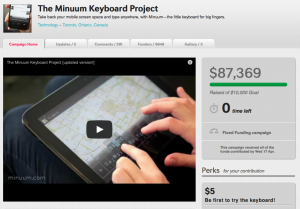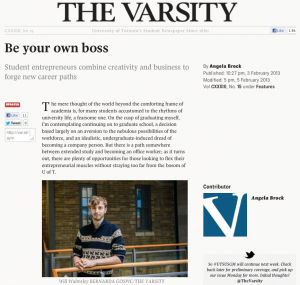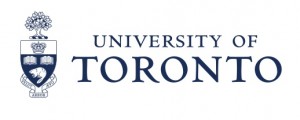Minuum’s crowdfunding campaign raises 873 per cent of initial goal
Over 9,600 people funded Toronto start-up’s one-dimensional mobile keyboard

TORONTO, Canada (April 18, 2013) — The Indiegogo campaign for Minuum, “the little keyboard for big fingers,” created by Whirlscape Inc., has closed after raising $87,369 in one month.
Minuum is a one-dimensional, tiny keyboard that frees up mobile screen space while allowing fast, accurate typing. Its specialized, patent-protected auto-correction algorithm allows highly imprecise typing, configuring the difference between what you type and what you mean in real time and getting it right even if you miss every single letter.
Read about the Minuum launch and reaching its $60,000 stretch milestone in previous posts. The posts include links to Minuum’s international media coverage. Most recently, their technology and Indiegogo success were featured in The Verge, the Financial Post, Mobile Syrup (includes an excellent Youtube interview with founder Will Walmsley, embedded below) and Tech2.
The campaign’s initial goal — $10,000 to fund the launch of an Android keyboard app — was reached within 14 hours. Since its launch on March 18, the campaign video has been viewed over 1.1 million times.
Did you know Minuum’s campaign is in Indiegogo’s top 10 of all time for projects with the largest number of supporters?









